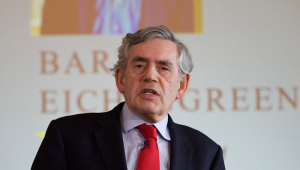The Commission for Parliamentary Reform, set up last October under former BBC Scotland controller John McCormick, wants to give Holyrood committees increased powers and elected, rather than appointed, conveners. It report, published as the parliament passes its 18th birthday, also suggests measures to improve the quality of legislation, strengthen the hand of the Presiding Officer and widen the social diversity of MSPs.
But pleas for more dramatic changes – notably from former first ministers Henry McLeish, Lord McConnell and Alex Salmond – have been rejected, at least for now. The commission, McCormick said, had been concerned to “maximise the capacity of the existing parliament…before more radical proposals are considered”.
Among submissions to the Commission were calls both to increase and reduce the number (currently 129) of MSPs; to reform the regional list electoral system, which creates two classes of MSP; and to give the parliament a revising chamber.
McCormick has not permanently ruled out such major reforms, but said: “It would not be justified to recommend a second chamber or an increase in the number of MSPs unless it can be demonstrated that the parliament is currently working at peak efficiency.”
The most significant changes would affect the parliament’s committees, which have been seen to be of uneven effectiveness in their scrutiny of legislation and of government.
McCormick suggests that they should be made smaller, and conveners elected rather than appointed by the party leaderships. They would form an important part of an expanded pre- and post-legislative scrutiny, pursuing their own agendas even when the full parliament was sitting.
The report says that committees should be supported, and challenged, to create more innovative ways of engaging public or expert opinion in their work. It suggests a dedicated team of parliament staff for this purpose, and leaves open the possibility of increasing the resources available to committee conveners and other MSPs.
Other recommendations include ending prior notice for First Minister’s Questions, more discretion for the Presiding Officer in allocating Chamber time between debate and scrutiny, more say for both the Presiding Officer and backbenchers in setting the parliament’s agenda, more scope to debate urgent matters, and a stronger role for the parliament as an upholder of human rights.
The report was welcomed as “thorough and thoughtful” by Presiding Officer Ken Macintosh, who said it recognised the important role the parliament now played in Scottish life.
“Some of the proposals, such as making more effective use of new technologies, simply reflect the way in which the world has changed over the last 18 years,” Macintosh said.
“Others, quite rightly, challenge us to think differently and more creatively about how we develop and evolve. All will help to strengthen the Parliament.”




















